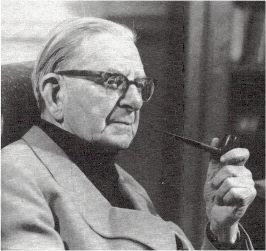A Quote by Anthony Trollope
It is the test of a novel writer's art that he conceal his snake-in-the-grass; but the reader may be sure that it is always there.
Related Quotes
It is easier for the reader to judge, by a thousand times, than for the writer to invent. The writer must summon his Idea out of nowhere, and his characters out of nothing, and catch words as they fly, and nail them to the page. The reader has something to go by and somewhere to start from, given to him freely and with great generosity by the writer. And still the reader feels free to find fault.
A fiction which is designed to inculcate an object wholly alien to the imagination sins against the first law of art; and if a writer of fiction narrow his scope to particulars so positive as polemical controversy in matters ecclesiastical, political or moral, his work may or may not be an able treatise, but it must be a very poor novel.
Now, as a reader, you shouldn't feel the decisions the writer makes about this DNA, or it would be boring beyond belief. But, as a writer, you're struggling to make these decisions. What should the title be? What's the first line? The point of view? And the struggle with the decisions is because you're trying to figure out WHAT IS THE NOVEL, WHAT IS THE NOVEL?
I feel that, in a sense, the writer knows nothing any longer. He has no moral stance. He offers the reader the contents of his own head, a set of options and imaginative alternatives. His role is that of a scientist, whether on safari or in his laboratory, faced with an unknown terrain or subject. All he can do is to devise various hypotheses and test them against the facts.
Most contemporary novels are not really "written." They obtain what reality they have largely from an accurate rendering of the noises that human beings currently make in their daily simple needs of communication; and what part of a novel is not composed of these noises consists of a prose which is no more alive than that of a competent newspaper writer or government official. A prose that is altogether alive demands something of the reader that the ordinary novel-reader is not prepared to give.
The analytical writer observes the reader as he is; accordingly, he makes his calculation, sets his machine to make the appropriate effect on him. The synthetic writer constructs and creates his own reader; he does not imagine him as resting and dead, but lively and advancing toward him. He makes that which he had invented gradually take shape before the reader's eyes, or he tempts him to do the inventing for himself. He does not want to make a particular effect on him, but rather enters into a solemn relationship of innermost symphilosophy or sympoetry.
What is a novel? I say: an invented story. At the same time a story which, though invented has the power to ring true. True to what? True to life as the reader knows life to be or, it may be, feels life to be. And I mean the adult, the grown-up reader. Such a reader has outgrown fairy tales, and we do not want the fantastic and the impossible. So I say to you that a novel must stand up to the adult tests of reality.







































